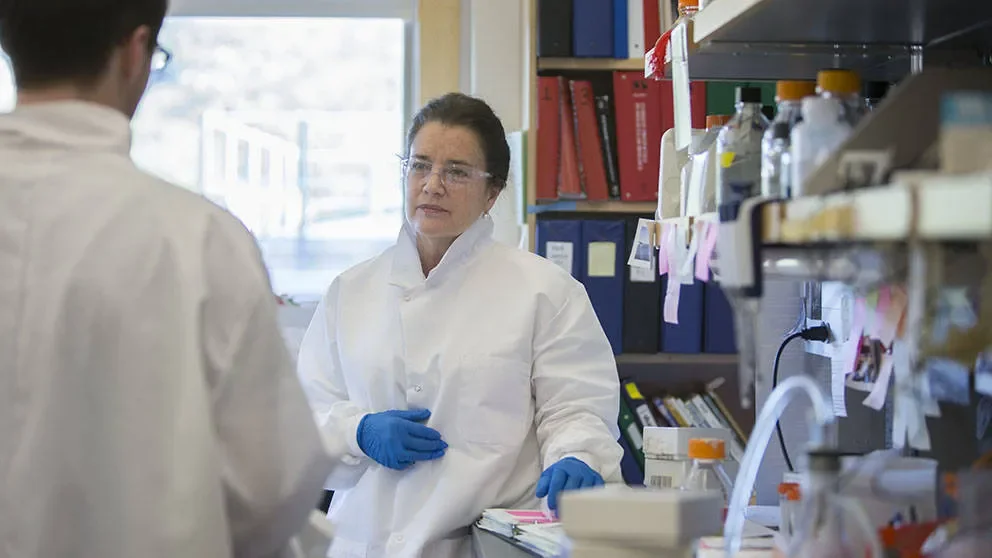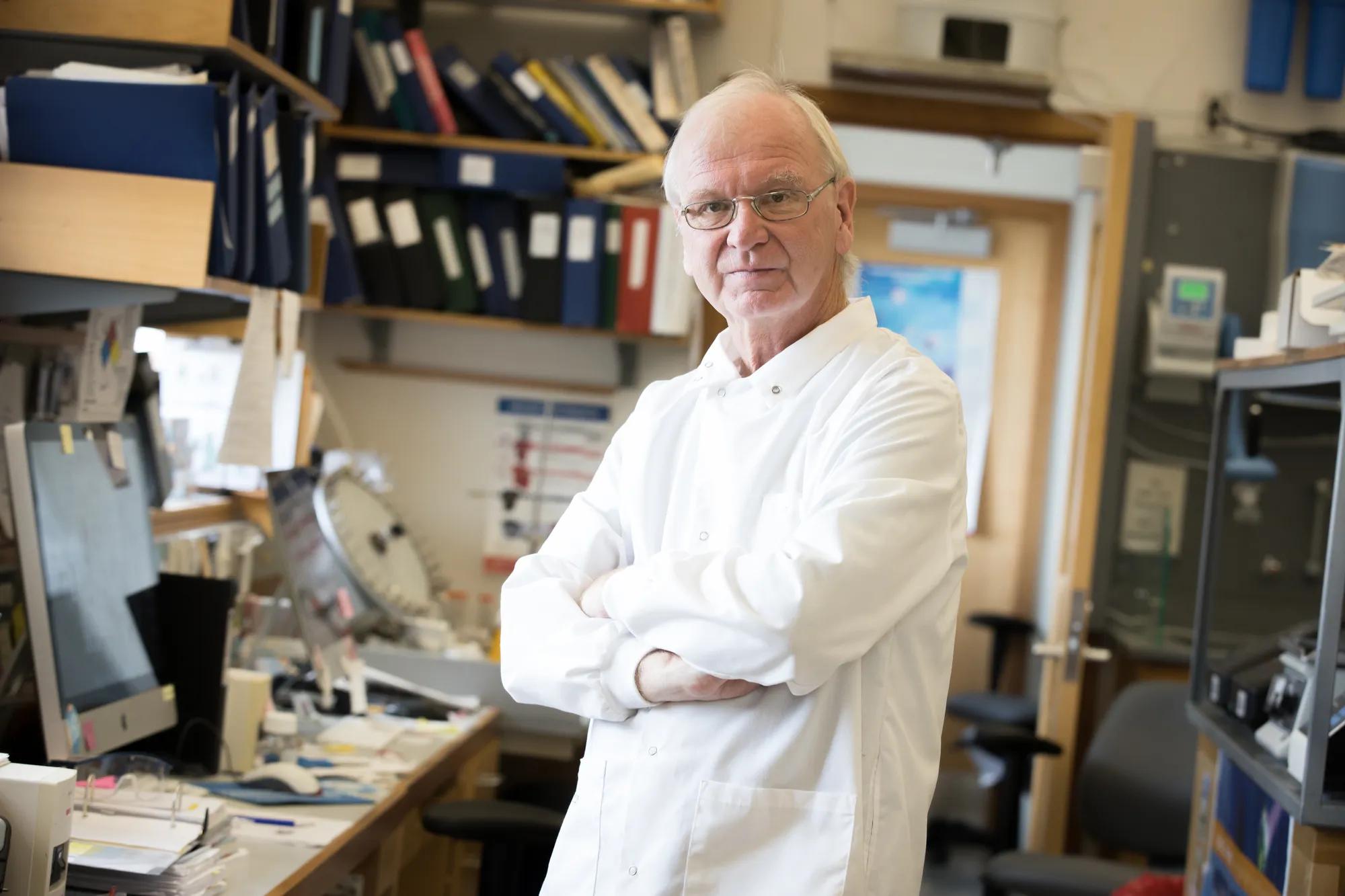JAX receives $1M from The Mark Foundation for Cancer Research
Article | July 20, 2021
Funds will support research into immunotherapy response rates and side effects
Immunotherapy can be a crucial tool for patients undergoing cancer treatment, vastly improving outcomes for many whose conditions would otherwise be fatal. Unfortunately a subset of these patients develop toxic autoimmune side effects to immune checkpoint inhibitor (ICI) treatment. If we could predict those individuals at risk of developing particular adverse events, interventions for such complications could be initiated in the timeliest fashion.
A new $1 million grant from the Mark Foundation for Cancer Research presented to The Jackson Laboratory will fund research to study why these side effects sometimes occur and use the power of genetics to predict better outcomes for patients.
The project, Identifying Genes Uniquely Contributing to ICI-induced Immune Related Adverse Events, will be led by JAX’s Dave Serreze, Ph.D., professor, and Nadia Rosenthal, Ph.D., F.Med.Sci., scientific director and professor. They will study cohorts of mice genetically engineered with humanized immune systems to find specific gene variants uniquely contributing ICI-induced Type 1 diabetes or myocarditis (heart inflammation), two relatively rare but life-threatening adverse responses to cancer immunotherapy .
“This project has the potential to greatly improve immunotherapy outcomes by predicting which patients might experience these side effects and altering cancer treatment plans for those who may be prone to them,” said Rosenthal. “The Mark Foundation’s commitment to supporting groundbreaking research will help develop more precision treatments for individual cancer patients.”
The Mark Foundation’s mission is to partner with scientists doing groundbreaking work to accelerate research that will transform the prevention, diagnosis and treatment of cancer. They work with individual investigators, multi-disciplinary teams and early-stage companies in the United States and around the world.
This recent grant builds on a $2.5 million grant the Mark Foundation awarded to the JAX team in 2019, aimed at determining how genetics influences immunotherapy response rates. The initial grant, awarded to JAX President and CEO Edison T. Liu, M.D. and Associate Professor Laura Reinholdt, Ph.D., focused on why only 20 to 40 percent of cancer patients respond well to immunotherapy. Liu and Reinholdt are using genetically diverse JAX mouse models to map the genetic differences found in the mice to specific genetic variants in humans. The goal of their work is to enable doctors to one day test and determine a given individual’s likely response to immunotherapy to help guide the selection of a treatment regimen.
“JAX’s track record in cancer research, and its reputation as the world’s leading research organization dedicated to developing optimal mouse models to help researchers in their quest to cure cancer, were major factors in awarding both grants,” said Mark Foundation CEO Michele Cleary.
“Results in animal studies don’t always hold true when we take therapies into humans,” stated Cleary. “Solving these issues with immunotherapy requires the type of complex and nuanced work in mouse engineering and genetics for which JAX is world-renowned.”

About The Mark Foundation
The Mark Foundation for Cancer Research actively partners with scientists to accelerate research that will transform the prevention, diagnosis, and treatment of cancer. The Mark Foundation fulfills its mission by supporting groundbreaking science carried out by individual investigators, multi-disciplinary teams, and inter-institutional collaborations in the United States and across the globe. Recognizing the obstacles that prevent scientific advances from improving patient outcomes, The Mark Foundation maintains a nimble, high-impact approach to funding basic and translational cancer research that bridges the gap between bench and bedside through grants and venture investments.
Since 2017, MFCR has awarded more than $123 million in grants to enable innovative basic, translational, and clinical cancer research, including early-stage drug discovery. MFCR also has a growing investment portfolio that includes drug discovery companies Accent Therapeutics (focused on RNA-modifying proteins implicated in cancer) and Verseau Therapeutics (developing macrophage-targeting immunotherapies) as well as liquid biopsy diagnostics companies C2i Genomics and GRAIL.



